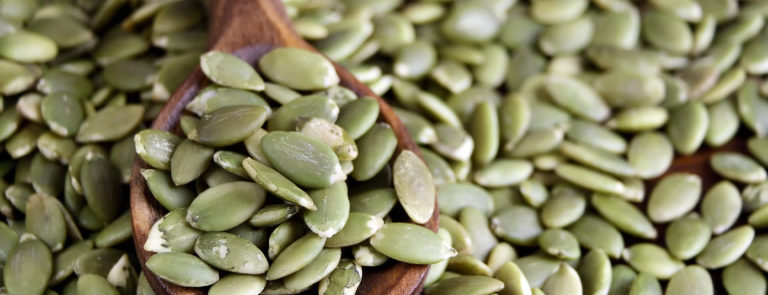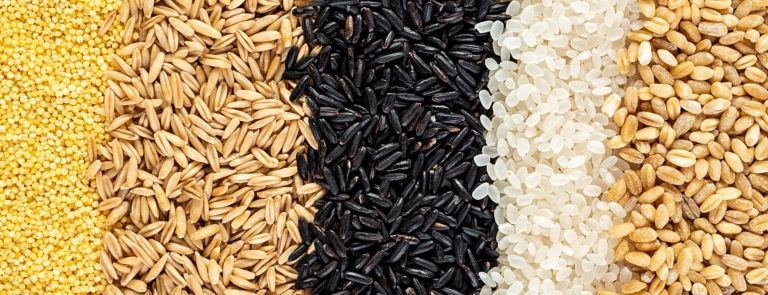15% off £30
Code:GET15
Health benefits of pumpkin seeds

Pumpkin seeds are great when it comes to providing health benefits and are a great option for those after a nutritious snack. Find out why here!
Seen these seeds on the supermarket shelves, but aren’t sure if they’re good for you or not? We can confirm that pumpkin seeds are plentiful when it comes to health benefits and a great option for those after a nutritious snack.
Note that pumpkin seeds that you buy aren’t the same as the seeds you find in your carving pumpkin on Halloween. They’ve had their outers shell removed and have been rinsed and then roasted in the oven to give them their delicious taste and crunchy texture.1
What are the benefits of eating pumpkin seeds?
Pumpkin seeds really pack a punch when it comes to beneficial nutrients! They may be small, but they’re also:2-
Amazing sources of omega 3
-
Full of protein
-
Have high numbers of antioxidants
-
Rich in magnesium and zinc
How to include more pumpkin seeds in your diet
Here's a few tasty and easy to include pumpkin seeds in your diet:7-
Eat them as a healthy snack
-
Add them into baking
-
Toss some on top of a salad
How should I portion my pumpkin seeds?
While pumpkin seeds may be packed full of goodness, it’s important that you eat them in the correct amounts to avoid getting a tummy ache. Try to eat no more than a handful of pumpkin seeds in a day and make sure you measure them out so you’re not overeating.8 Now you’re clued up on the health benefits of pumpkin seeds, why not purchase some from our seeds range? You’ll find packs of protein-packed pumpkin seeds, in addition to other plant-based treats such as sunflower and chia seeds. Shop Seeds Last updated: 16 June 2020 Sources 1 https://www.bbcgoodfood.com/howto/guide/health-benefits-pumpkin-seeds 2 https://www.healthline.com/nutrition/11-benefits-of-pumpkin-seeds 3 https://www.healthline.com/nutrition/17-health-benefits-of-omega-3 4 https://www.nutrition.org.uk/nutritionscience/nutrients-food-and-ingredients/protein.html?start=2 5 https://www.nhs.uk/conditions/vitamins-and-minerals/vitamin-e/ 6 https://www.nhs.uk/conditions/vitamins-and-minerals/others/ 7 https://www.bbcgoodfood.com/howto/guide/health-benefits-pumpkin-seeds 8 https://www.verywellfit.com/pumpkin-seed-nutrition-facts-calories-and-health-benefits-4114356Related Articles
Shop by wellness goal
Sign up for exclusive offers
Plus, get expert advice to support your health & wellness straight to your inbox when you sign up to Holland & Barrett emails.
Read our
privacy policy














